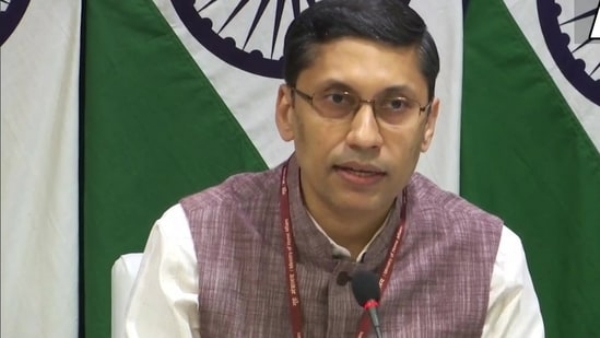Countries-specific resolutions are never helpful: India on abstaining Xinjang vote
The Ministry of External Affairs spokesperson Arindam Bagchi, said, "India remains committed to upholding all human rights. India"s vote at the UNHRC was in line with its long held position that countries specific resolutions are never helpful."
Total Views |
New Delhi, Oct 8: India said its decision to abstain from voting on the rights situation in China's Xinjiang at the UN Human Rights Commission was in line with the practice of not voting on country-specific resolutions.
Earlier, India abstained from voting on a United Nations Human Rights Council (UNHRC) resolution on holding a debate on the human rights situation in China's Xinjiang.

The draft resolution was on "holding a debate on the situation of human rights in the Xinjiang Uyghur Autonomous Region of China". However, it was rejected in the 47-member Council after 17 members voted in favour, 19 members voted against it, including China, and 11 abstentions, including India, Brazil, Malaysia, Mexico and Ukraine.
Speaking about the same, the Ministry of External Affairs spokesperson Arindam Bagchi, said, "India remains committed to upholding all human rights. India's vote at the UNHRC was in line with its long held position that countries specific resolutions are never helpful."
Also Read: Why India abstained from voting on holding debate on China’s treatment of Uyghur Muslims at UN
Further, he said, "India favours a dialogue to deal with such issues. We have taken note of the OHCHR assessment of human rights concerns in Xinjiang Uighur autonomous region of the People's Republic of China." He also said that "human rights of the people of Xinjiang Uighur autonomous region should be respected and guaranteed". India, said that the relevant party (China) will address the situation objectively and properly".
As reported earlier, India has never supported country-specific issues in Human Rights Council, experts had said. If India supports backs such a resolution, it can lead to similar moves by China on other issues. This also comes at a time the resolution was a follow-up to a recent report by former UN High Commissioner for Human Rights Michelle Bachelet that exposed a wide range of human rights violations in Xinjiang.
Serious allegations of human rights violations against Uyghurs and other predominantly Muslim communities in China were brought to the attention of the UN Human Rights Office and UN human rights mechanisms since late 2017.


